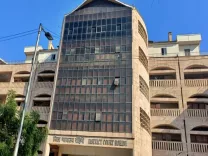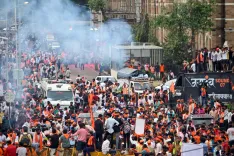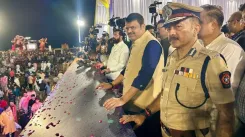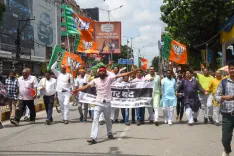Did Udit Raj Criticize the Election Commission Over SC's Aadhaar Remarks?
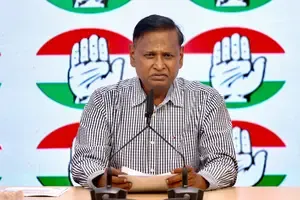
Synopsis
Key Takeaways
- Udit Raj critiques the Election Commission for bias.
- The Supreme Court recommends diverse ID verification.
- 78 million voters face citizenship verification.
- Opposition protests against selective voter removal.
- Documentation challenges for voters in Bihar.
New Delhi, July 12 (NationPress) On Saturday, Congress leader Udit Raj sharply criticized the Election Commission of India (ECI), alleging partiality in the ongoing Special Intensive Revision (SIR) of the voter list in Bihar. This statement followed the Supreme Court's recommendation for the ECI to consider various forms of identification, including Aadhaar cards, voter IDs, and ration cards, for voter verification during the SIR process.
In response to the Supreme Court's comments, Udit Raj remarked that the apex court was correct and accused the ECI of acting in a manner that favored the BJP and JD(U) in manipulating voter registrations.
"The Supreme Court has articulated the truth. The motives and actions of the Election Commission, alongside the BJP and JD(U), to skew the system were evident. The Election Commission operates dishonestly; its headquarters should be within the BJP office. This is a triumph for the citizenry. The RJD and Congress have united against this deception. This is a victory for the populace. We are committed to ensuring that no fraud occurs, as seen in the electoral manipulations in Haryana and Maharashtra," Udit Raj stated.
He further asserted that the Opposition remains steadfast in preventing electoral fraud in Bihar and will persist in opposing any attempts to tamper with voter data.
The Opposition in Bihar, comprising the Congress, RJD, and Left parties, has protested against the SIR process, alleging it is designed to selectively eliminate voters who challenge the ruling NDA.
The Opposition expressed concern regarding the requirement for 78 million voters to verify their citizenship within a few weeks.
The Congress party pointed out that, in a state like Bihar, where poverty and low education levels lead to limited awareness regarding documentation, approximately 30 million voters would need to present 11 different documents instead of the more accessible ration cards, Aadhaar cards, or voter IDs to confirm their citizenship.
In response, the Election Commission has denied these allegations, asserting that the process is being conducted legally.
The recent suggestion from the Supreme Court has been perceived by the Opposition as a significant moral victory, reinforcing their call for transparency and fairness in the electoral roll revision process.

